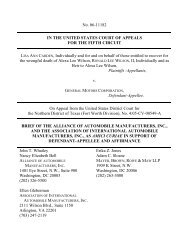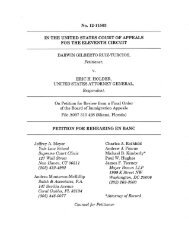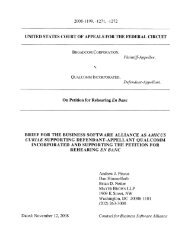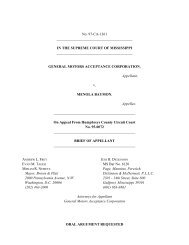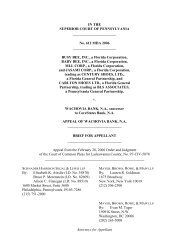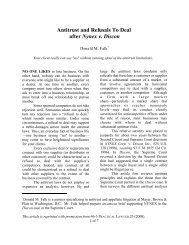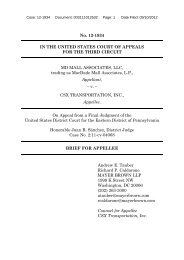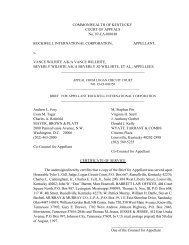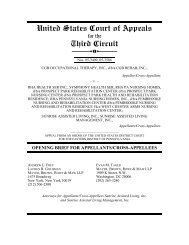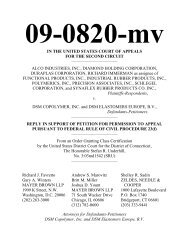No. 5-99-0830 IN THE APPELLATE COURT OF ... - Appellate.net
No. 5-99-0830 IN THE APPELLATE COURT OF ... - Appellate.net
No. 5-99-0830 IN THE APPELLATE COURT OF ... - Appellate.net
Create successful ePaper yourself
Turn your PDF publications into a flip-book with our unique Google optimized e-Paper software.
and be likely to assist the trier of fact. <strong>No</strong>vak, 163 Ill.2d at 104; see also MICHAEL H.<br />
GRAHAM, CLEARY & GRAHAM’S HANDBOOK <strong>OF</strong> ILL<strong>IN</strong>OIS EVIDENCE § 702.2, at 614-15 (7th<br />
ed. 1<strong>99</strong>9); id. § 702.4, at 620-21. In its recent decision in Donaldson v. Central Illinois<br />
Public Service Co., 2000 WL 268307 (5th Dist. 2000), this Court held that the touchstone<br />
of admissibility in Illinois continues to be the Frye requirement of general acceptance within<br />
the scientific community. 38/<br />
In this case, the ultimate opinions offered by plaintiffs’ experts — that all non-OEM<br />
parts are inherently inferior to OEM parts — should not have been admitted because they<br />
were not based on any reliable methodology recognized in the relevant scientific community.<br />
The global opinions offered by plaintiffs’ experts all suffered from a common flaw: they<br />
were unreliable generalizations drawn from nonrepresentative and skewed samples. A<br />
“statistically valid sample” must be both “representative . . . and random.” Protestant Mem.<br />
Med. Ctr., Inc. v. Department of Pub. Aid, 295 Ill.App.3d 249, 255 (5th Dist. 1<strong>99</strong>8). Courts<br />
routinely reject expert opinions when they are based on inadequate, nonrepresentative or<br />
biased samples. 39/<br />
38/<br />
In Donaldson, the Court disagreed with the Fourth District’s adoption of a “Frye-plus<br />
reliability standard” in Harris v. Cropmate Co., 302 Ill.App.3d 364 (1<strong>99</strong>9). State Farm<br />
respectfully disagrees with the Court’s decision and urges it to adopt the standard articulated<br />
in Daubert v. Merrell Dow Pharmaceuticals, Inc., 509 U.S. 579 (1<strong>99</strong>3). In any event, as<br />
demonstrated below, plaintiffs’ expert testimony should have been excluded whether the<br />
standard is Frye, Frye-plus reliability, or Daubert.<br />
39/<br />
See, e.g., O’Conner v. Commonwealth Edison Co., 807 F. Supp. 1376, 1396 (C.D.<br />
Ill. 1<strong>99</strong>2) (physician’s opinion based on a sample of only five patients was inadmissible<br />
because such “limited personal experience simply cannot provide a sufficient scientific basis<br />
upon which any scientific reasoning process can discover a ‘binding universal rule’”), aff’d,<br />
13 F.3d 1090 (7th Cir. 1<strong>99</strong>4); Comer v. American Elec. Power, 63 F. Supp.2d 927, 934 (N.D.<br />
Ind. 1<strong>99</strong>9); Muzzey v. Kerr-McGee Chem. Corp., 921 F. Supp. 511, 519 (N.D. Ill. 1<strong>99</strong>6); cf.<br />
-90-



